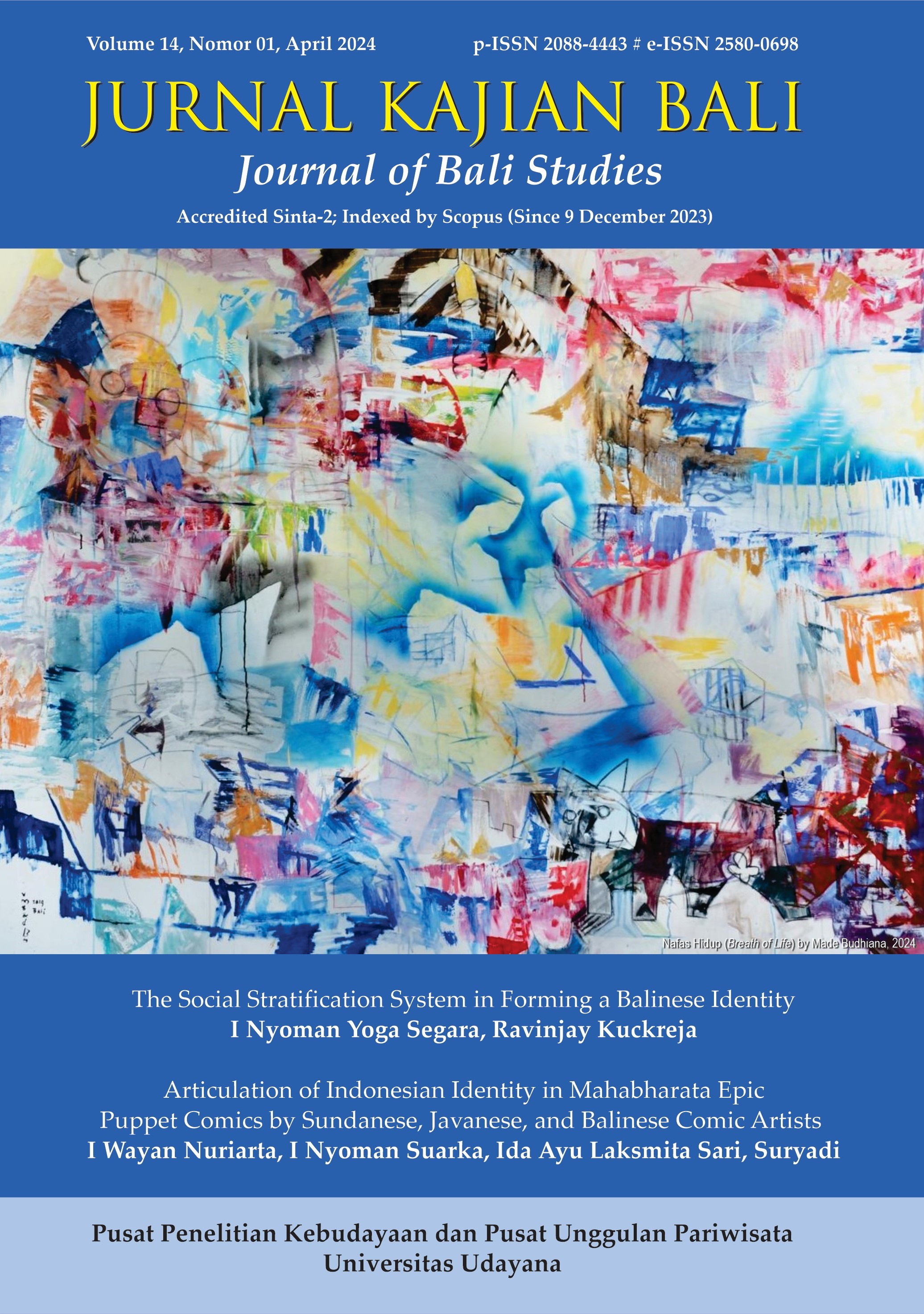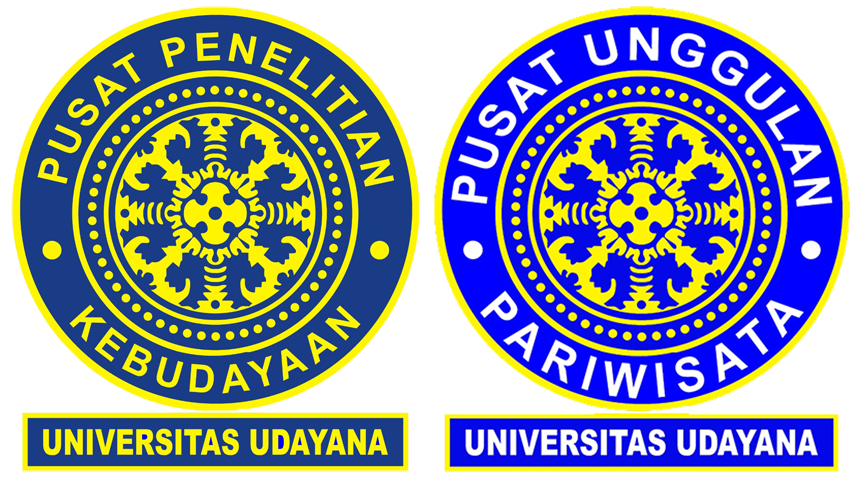Unveiling Potentials and Overcoming Obstacles: Exploring the Feasibility of Green-Hybrid Conference Management Post-Covid-19 in Bali
Abstract
Over the past four decades, Bali has emerged as a leading MICE (Meetings, Incentives, Conferences, Exhibitions) tourism destination. This study examines the feasibility of organizing green-hybrid conferences in Bali post Covid-19, focusing on identifying key potentials and obstacles for effective management. Employing qualitative methods, utilizing interviews and document analysis, the research assesses infrastructure, human resources, and logistical aspects relevant to hosting such conferences. Bali demonstrates adequate infrastructure and human resources but encounters challenges like technological limitations and logistical dependence. These findings shed light on the complexities of implementing green-hybrid conference management post-pandemic. The study’s limitation lies in its focuses solely on Bali, thus potentially limiting generalizability. Nonetheless, it emphasizes collaborative stakeholder efforts and sustainable practices integration in conference management. It highlights the importance of investing in technology and local capacity building to improve feasibility. Future research could explore other destinations’ experiences regarding long term economic and environmental impacts of green-hybrid conference initiatives.
Downloads
References
Amorim, D., Jimenéz-Caballero, J.L. and Aleida, P. (2021). The Impact of Performing Arts Festivals on Tourism Development: Analysis of Participants’ Motivation, Quality, Satisfaction and Loyalty. Tourism Management Studies, 16(4), 45-57. DOI: https://doi.org/10.18089/tms.2020.160404
Arcana, K.T.P. (2014). Implementasi Konsep ‘Sustainable Event Management’ dalam Pengelolaan Kegiatan MICE di kawasan Wisata Nusa Dua, Bali. JUMPA, 1, 95-118. DOI:https://doi.org/10.24843/JUMPA.2014.V01.I01.p05
Backman, K.F. (2018). Event Management Research: The Focus Today and in the Future. Tourism Management Perspectives, 25,169-171. DOI: https://doi.org/10.1016/j.tmp.2017.12.004
Bali. Peraturan Gubernur Bali nomor 97 tahun 2018 tentang Pembatasan Timbulan Sampah Plastik Sekali Pakai.
Bali. Peraturan Gubernur Bali nomor 99 tahun 2018 tentang Pemanfaatan Produk Pertanian, Perikanan, dan Industri Lokal Bali.
Bali. Peraturan Gubernur Bali nomor 45 tahun 2019 tentang Bali Energi Bersih.
Bali. Peraturan Gubernur Bali nomor 47 tahun 2019 tentang Pengelolaan Sampah Berbasis Sumber.
Bali. Peraturan Gubernur Bali nomor 48 tahun 2019 tentang Penggunaan Kendaraan Bermotor Listrik Berbasis Baterai.
Cai, M., Tang, J.N., Griese, K.M. (2014). Green Meeting: A Sustainable Event. AMR 1073-076, 2815–2821. DOI: https://doi.org/10.4028/www.scientific.net/amr.1073- 1076.2815
Chirieleison, C., Montrone, A., and Scrucca, L. (2020). Event Sustainability and Sustainable Transportation: A Positive Reciprocal Influence. Journal of Sustainable Tourism, 28 (2), 240-262. DOI: https://doi.org/10.1080/09669582.2019.1607361.
Crouch, G.I., Del Chiappa, G. and Perdue, R.R. (2019). International Convention Tourism: A Choice Modelling Experiment of Host City Competition. Tourism Management, 71, 530-542. DOI: https://doi.org/10.1016/j.tourman.2018.10.002.
Dalgiç, A. and Birdir, K. (2020). Key Success Factors on Loyalty of Festival Visitors: The Mediating Effect of Festival experience and Festival Image. Tourism and Management Studies, 16 (1), 29-28. DOI: https://doi.org/10.18089/tms.2020.160103
Dickson, C. and Arcodia, C. (2022, July). Environmentally Sustainable Events: A Critical Review of the Literature. In Global Events Congress IV: Festivals & Events Research: State of the Art, Leeds Metropolitan University. 14, 16.
Dolf, M. and Teehan, P. (2015). Reducing the Carbon Footprint of Spectator and Team Travel at The University of British Columbia’s Varsity Sports Events. Sport Management Review, 18, 244-255. DOI: https://doi.org/10.1016/j.smr.2014.06.003
Fazrin, S.N. and Rachmawati, I. (2022, August). Strategi Komunikasi Pemasaran Melalui Event. In Bandung Conference Series: Communication Management. 2(2), 813-818. DOI: https://doi.org/10.20313/bcscm.v2i2.4499
Fenich, G.G. (2012). Meeting, Expositions, Events, and Conventions on Introduction to the Industry (Third). Pearson Education, Inc.
Fryatt, J., Garriga, R., Janssen, R., CMM, John, R., & Smith, R. J. (2012). How to Guide: Hybrid Meetings. s.l.: Meeting Professionals International. Available from: https://www.scribd.com/document/546632800/hybridmeeting-howto
Getz, D. (2022). Event management. In Encyclopedia of Tourism Management and Marketing (pp. 144-147). Edward Elgar Publishing.
Gössling, S., Scott, D., Hall, C. M. (2020). Pandemics, Tourism and Global Change: A Rapid Assessment of COVID-19. Journal of Sustainable Tourism. 29 (1), 1-20. DOI: https://doi.org/10.1080/09669582.2020.1758708.
GSTC (2024). Global Sustainable Tourism Council MICE Criteria. [Retrieved, March 29, 2024] Available from: https://www.gstcouncil.org/gstc-publishes-new-gstc-mice-criteria/?utm_source=GSTC+Mailing+List&utm_campaign=d22069e718-GSTC-Newsletter-March-2024&utm_medium=email&utm_term=0_4f18ec2bab-d22069e718-1204989608&mc_cid=d22069e718&mc_eid=1124092c41
Hamm, S., Frew, E. and Lade, C. (2018). Hybrid and Virtual Conferencing Modes versus Traditional Face-to-Face Conference Delivery: A Conference Industry Perspective. Event Management, 22(5), 717-733. DOI: https://10.3727/152599518X15299559637635.
Hanaei, S., Takian, A., Majdzadeh, R., Maboloc, C. R., Grossmann, I., Gomes, O., ... & Rezaei, N. (2022). Emerging standards and the hybrid model for organizing scientific events during and after the COVID-19 pandemic. Disaster medicine and public health preparedness, 16(3), 1172-1177. DOI: https://doi.org/10.1017/ dmp.2020.406.
Heryana, A., & Unggul, U. E. (2018). Informan dan pemilihan informan dalam penelitian kualitatif. Universitas Esa Unggul, 25(15). Available from: Reserachgate. https://www.researchgate.net/publication/329351816
Hitchcock, M. and Putra, I.N.D (2007 [2018]). Tourism, Development and Terrorism in Bali. London: Ashgate.
International Congress and Convention Association. (2020). iccaworld.org
Katsitadze, N. and Natsvlishvili, I. (2017). Development Opportunities of MICE Tourism in Developing Countries: Case of Georgia. International Journal of Business and Management Studies, 6 (01), 163-170.
MahadewiI, N.M.E.; Bendesa, I.K.G.; Antara, M. (2014). Factors Influencing Tourists Revisit to Bali as Mice Destination. E-Journal of Tourism, [S.l.], July 2014. ISSN 2407-392X. DOI: https://doi.org/10.24922/eot.v1i1.9845
Mananda, S. (2017). Pengantar Manajemen MICE (Meetings, Incentives, Conventions, and Exhibitions). Denpasar: Cakra Press.
Nilsson, Linda. (2020). “Hybrid Events: Breaking the borders. Transferring your hybrid event into an engaging experience for different audiences and stakeholders” (thesis). LAB University of Applied Science Ltd.
Nuruddin, Wirawan, P.E., Pujiastuti, S., Astuti, N.N.S. (2020). Strategi Bertahan Hotel di Bali Saat Pandemi Covid-19. Jurnal Kajian Bali (Journal of Bali Studies), 10 (2), 579-602. DOI: https://doi.org/10.24843/JKB.2020.v10.i02.p11
Patton, M.Q. (2002). Qualitative Research & Evaluation Mehods (3 ed.). California: Sage Publishing.
Picard, M. (1996). Bali: Cultural Tourism and Touristic Culture. Singapore: Archipelago Press.
Pickel-Chevalier, S., Bendesa, I.K.G., Putra, I.N.D. (2019). The Integrated Touristic Villages: an Indonesian Model of Sustainable Tourism? Tourism Geographies. DOI: https://doi.org/10.1080/14616688.2019.1600006
Presbuty, R. and Edwards, D. (2005). Incorporating Sustainability in Meetings and Event Management Education. International Journal of Event Management Research, 1(1), 30-45. Available from: https://opus.lib.uts.edu.au/handle/10453/10197
Putra, I.N.D, Verheijen, B., Ardika, I.W., Yanthy, P.S. (2021). Affinity tourism and exotic tourism in Bali. The Chinese and Indian tourist gaze in the Garuda Wisnu Kencana Park, Journal of Tourism and Cultural Change, 19:4, 427-443, DOI: https://doi.org/10.1080/14766825.2020.1797063
Putri, M. dan Rudatin, C.L. (2020). Peranan PCO dalam Bidding Konferensi Asosiasi: 2021 Asia Pacific Cities Summit. Bisnis Event, 1(2), 52-57. DOI: https://doi.org/10.32722/bev.vli2.5408.
Ramely, A., Talib, M.F.A., Radha, J.Z.R.R.R. and Mokhtar, M.F. (2022). Green Event Practices: Understanding the Adaptation of Event Organizers through a Systematic Review. Malaysian Journal of Sustainable Environment, 9(1),119-140. DOI: https://doi.org/1024191/myse.v9i1.17295.
Ranacher, L., & Pröbstl-Haider, U. (2014). Green meetings: Ecocertification of sustainable events in conference and business tourism. WIT Transactions on Ecology and the Environment, 187, 121-132. DOI: https://doi.org/102495/ST140101
Saceos.glueup.com. (2024). Singapore MICE Sustainability Certification. [Retrieved: March 31, 2024]. Available from: https://saceos.glueup.com/event/singapore-mice-sustainability-certification-briefing-online-100082/
Saharani, E.A. dan Herawati, T. (2022). Proses Persiapan dan Pelaksanaan Event Indonesia & Taiwan Online Business Day oleh PT. Maximaindo. Bisnis Event, 3(12), 99-106. Available from: https://jurnal.pnj.ac.id/index.php/bis/article/download/5731/2943
Santos, M.C., Ferreira, A., Costa, C. and Santos, J.A.C (2020a). A Model for The Development of Innovative Tourism Products: From Service to Transformation. Sustainability, 12, 4362. DOI: https://doi.org/10.3390/su12114362
Schacter, Daniel & Kenan, William. (2011). Psychology. Second Edition. New York: Worth Publishers.
Sox, C.B., Kline, S.F., Crews, T.B., Strick, S.K. and Campbell, J.M. (2017). Virtual and Hybrid Meetings: Gaining Generational Insight from Industry Experts. International Journal of Hospitality & Tourism Administration, 18(2), 133-170. DOI: https://doi.org/10.1080/15256480.2016.1264904
Sox, C.B. (2014). “Virtual and Hybrid Meetings: A Three Generational Perspective” (Doctoral dissertation). Carolina: University of South Carolina, USA.
Sox, C., Benjamin, S., Carpenter, J. and Strick, S. (2013). An Explanatory Study of Meeting Planners and Conference Attendees’ Perception of Sustainable Issues in Convention Centers. Journal of Convention and Event Tourism, 14, 144-161. DOI: https://doi.org/10.1080/15470148.2013.787662
Sugiyono. (2020). Metodelogi Penelitian Kuantitatif, Kualitatif dan Kombinasi (Mixed Methods). Edisi 2: Cetakan ke-1. Bandung: Alfabeta.
Sunarta, N., Arida, N. S. (2017). Pariwisata Berkelanjutan. Denpasar: Cakra Press
Suryawardani, I. G. A. O., Wiranatha, A. A. S., Pujaastawa, I. B. G., Yuliarsa, M. S., Kencana, I. P. E. N. 2019. Analisa Pasar Wisatawan MICE di Kota Denpasar. Denpasar: DEVA Communication.
Thirachaya, C. (2019). Management for the Transformation of a Historical City into a MICE City Supporting the Idea of MICE Business in AEC. African Journal of Hospitality, Tourism and Leisure. 8(05), 1-10.
UNWTO. (2012). Tourism in the Green Economy. [Retrieved: April 15, 2023] Available from: https://www.unwto.org/archive/global/publication/tourism-green-economy
UNWTO. (2023) Sustainable Development [Retrieved: September 27, 2023]. Available from https://www.unwto.org/sustainable-development
UNEP. (2009). Green Meeting Guide 2009. [Retrieved: April 1, 2024]. Available from: https://wedocs.unep.org/bitstream/handle/
UNEP. (2012). Tourism in the Green Economy: Background Report. [Retrieved: April 15, 2023]. Available from: https://wedocs.unep.org/handle/20.500.11822/22015
Verheijen, B. and Putra, I.N.D (2020). Balinese Cultural Identity and Global Tourism: The Garuda Wisnu Kencana Cultural Park. Asian Ethnicity, 21(3), 425-442. DOI: https://doi.org/10.1080/14631369.2019.1641691
Vickers, A. (2012) Bali: A Paradise Created. Second ed. North Clarenden, VT: Tuttle.
Visitsingapore. com (2024). Singapore’s MICE Sustainability Roadmap. [Retrieved March 31, 2024]. Available from: https://www.visitsingapore.com/mice/en/plan-your-event/sustainability/mice-sustainability-roadmap/
Yuniati, N. (2021). Perubahan Lansekap Bisnis MICE Sebagai Respon Strategi Menghadapi Pandemi Covid-19. In Kapita Selekta Pariwisata di Era Adaptasi Kebiasaan Baru. STIPRAM Press, pp. 133-144. Yogyakarta: STIPRAM Press (Sekolah Tinggi Pariwisata Ambarrukmo).

This work is licensed under a Creative Commons Attribution 4.0 International License.



















